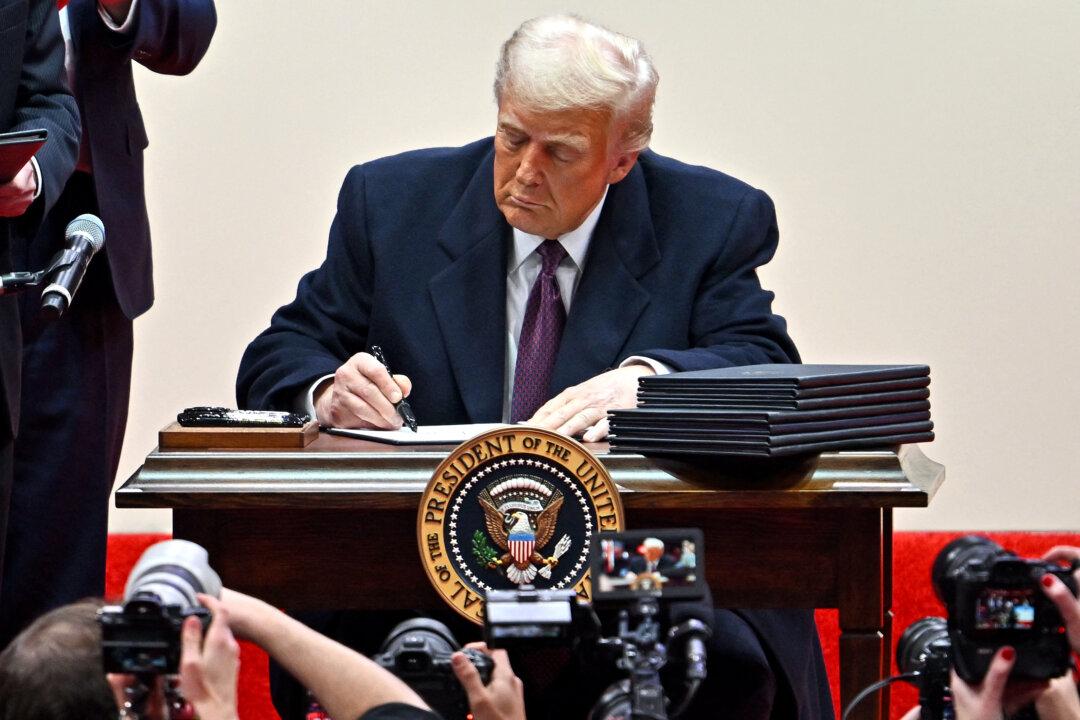President Donald Trump on Monday, in one of his first official acts as president, signed an executive order ending birthright citizenship.
The executive order clarifies that the federal government does not automatically recognize birthright citizenship for children born to illegal immigrants in the United States.





